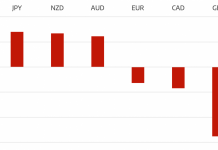Blockchain technology has evolved far beyond its early use as cryptocurrency, now solving practical challenges across industries like finance, supply chain management, healthcare, and real estate. Built upon decentralization, transparency, and security principles–it has become a cornerstone for innovation. Projections project that the market will experience an explosive 52.8% compound annual growth rate up to 2032 thanks to blockchain’s ability to streamline complex systems while decreasing costs while providing secure methods of transaction across different sectors. This rapid expansion highlights its growing importance across industries. Below are key examples of its impact.

Decentralized Finance (DeFi) Changing Financial Transactions
DeFi is transforming financial services by removing intermediaries and enabling direct transactions. With its fast transaction speeds and low latency, SEI, a high-performance Layer 1 blockchain optimized for DeFi applications, plays a crucial role in facilitating high-frequency trading and seamless user experiences. The blockchain supports services such as lending, borrowing, and trading through smart contracts, which reduce costs, speed up transactions, and broaden access to financial tools. As DeFi continues to expand, platforms like SEI challenge traditional banking systems and foster more inclusive financial ecosystems.
Supply Chains Becoming More Transparent
Blockchain provides a clear, permanent record of product movement, addressing inefficiencies and fraud in supply chains. Sectors like food production and manufacturing benefit from this clarity. For example, it allows consumers to confirm the origin of coffee beans or verify the authenticity of luxury goods. By making processes transparent and reliable, businesses build trust with customers and improve operational accountability.
NFTs Changing Digital Ownership
NFTs allow creators to sell unique digital items while maintaining proof of ownership and authenticity. Unlike cryptocurrencies, NFTs are tied to specific assets, letting artists and creators take direct control over their work. This setup reduces dependence on intermediaries and provides new ways to earn from digital content. Blockchain ensures these transactions are secure, enabling a fairer system for creators to manage and profit from their work. Musicians, for instance, can release music as NFTs, granting fans ownership rights and exclusive content.
This framework improves how creators are compensated and introduces alternative revenue opportunities. NFTs further strengthen copyright protection by embedding ownership details directly into digital assets, significantly lowering the likelihood of unauthorized use or distribution.
Blockchain in Healthcare Applications
Blockchain technology strengthens patient records while streamlining information exchange in healthcare systems, making accessing sensitive medical records safer while remaining accessible when required by healthcare providers. Blockchain-powered technology not only allows pharmaceutical supply chain management to improve, by providing precise tracking from production to delivery and eliminating counterfeit exposure, but it also supports startups and pilot programs in actively using it for solutions that improve patient care while optimizing healthcare system operations.
Smart Contracts in Real Estate and Legal Fields
Smart contracts are automated agreements that execute specific terms when certain predefined conditions are fulfilled, with all terms embedded directly within their code. Smart contracts streamline processes in both real estate and legal transactions by eliminating intermediaries while assuring compliance with agreed-upon conditions; for example, smart contracts automate property sales or lease agreements while expediting transactions by cutting out intermediaries altogether.
For example, once conditions like payment are met, a smart contract can automatically transfer property ownership to the buyer. In the legal industry, smart contracts facilitate contract validation and ensure compliance with agreed terms, minimizing disputes and enhancing efficiency in legal processes.
Energy Sector Transformation
The energy industry is experiencing significant change as blockchain technology is integrated into its operations. This technology supports decentralized energy grids, enabling consumers to engage in direct energy trading. Through specialized platforms, individuals with solar panels can distribute surplus energy to nearby users. Blockchain can enhance energy allocation efficiency, reduce expenses, and foster greater consumer participation in energy markets. Optimizing energy use while encouraging renewable resource adoption are just two aspects that blockchain plays a pivotal role in creating a more sustainable energy sector future.

Conclusion
Blockchain technology is creating dramatic shifts across various industries by offering decentralized, transparent, and cost-efficient methods of conducting transactions. It is reshaping financial services through decentralized finance (DeFi) platforms such as SEI, improving accountability in supply chain processes, modernizing the management of healthcare data, streamlining property transactions through smart contracts, and optimizing energy distribution networks. The breadth and depth of blockchain’s influence are both extensive and transformative. As advancements in this field progress, maintaining a deep understanding and readiness to adapt will be essential for companies and individuals seeking to maximize the opportunities this technology offers in the future.
HedgeThink.com is the fund industry’s leading news, research and analysis source for individual and institutional accredited investors and professionals








































